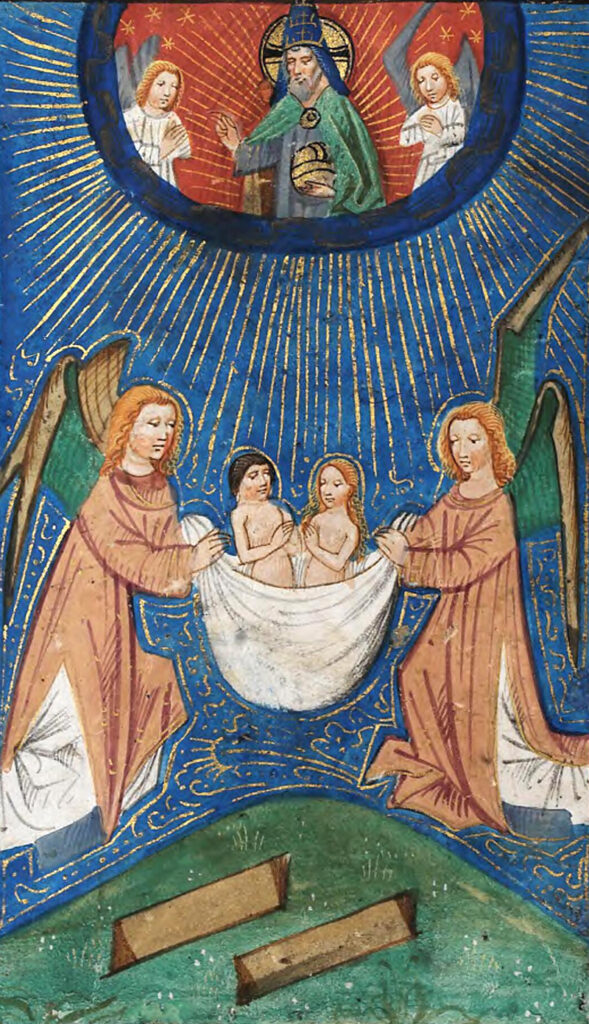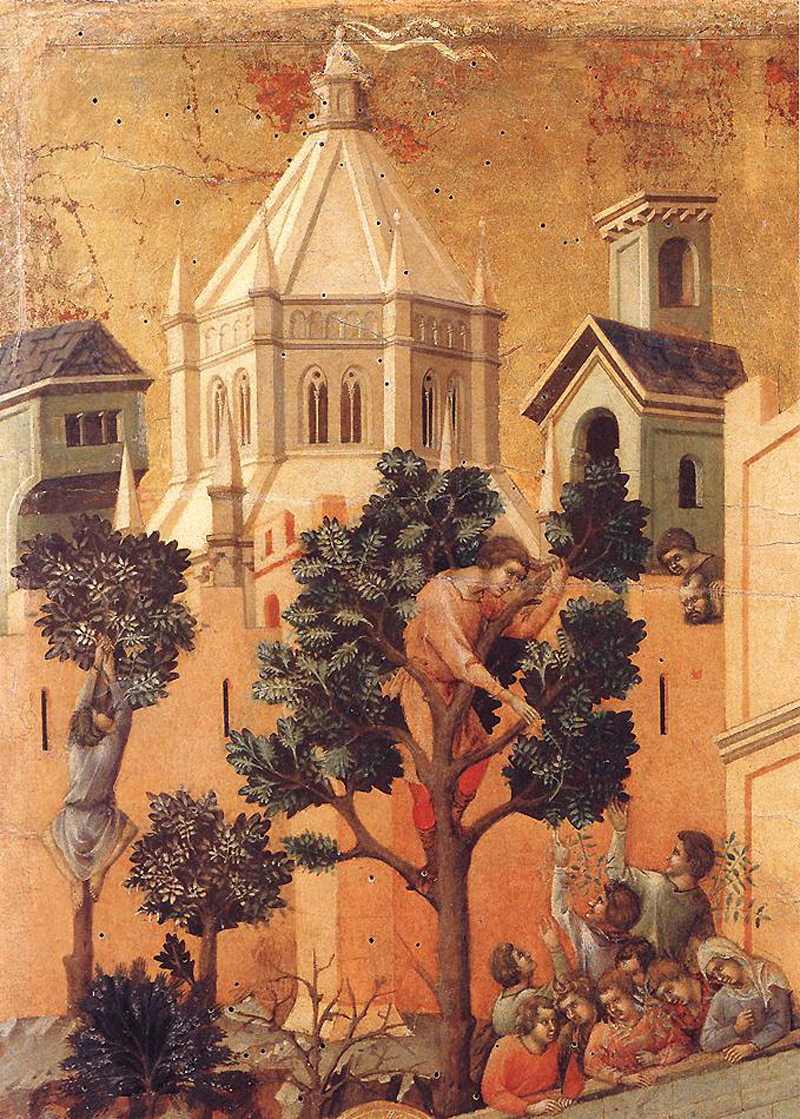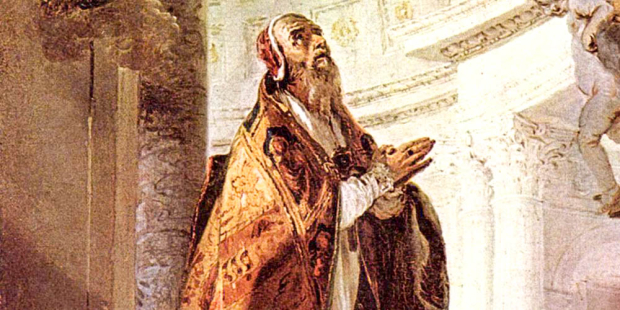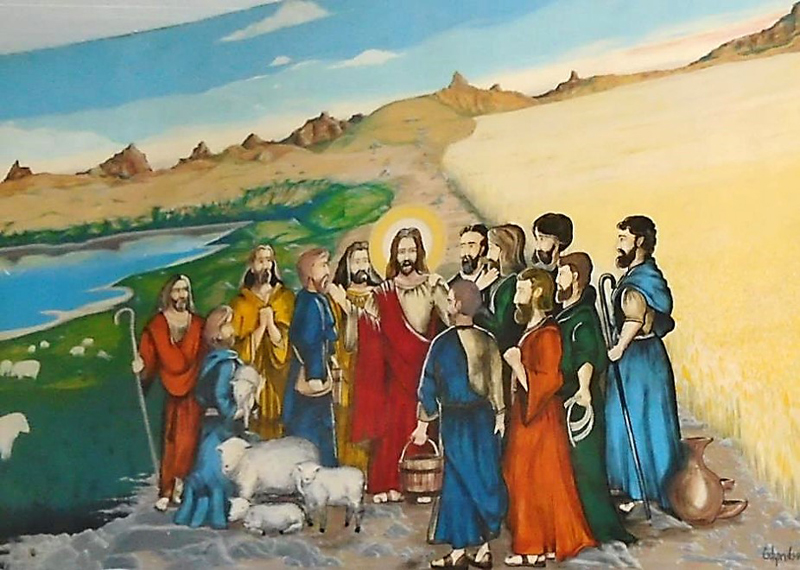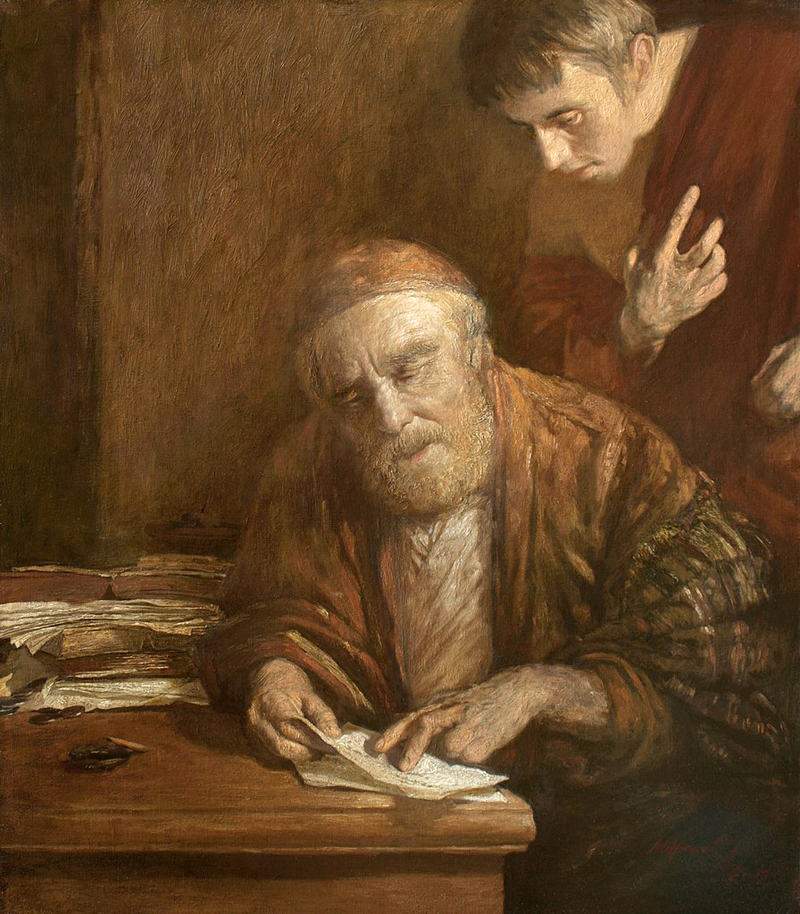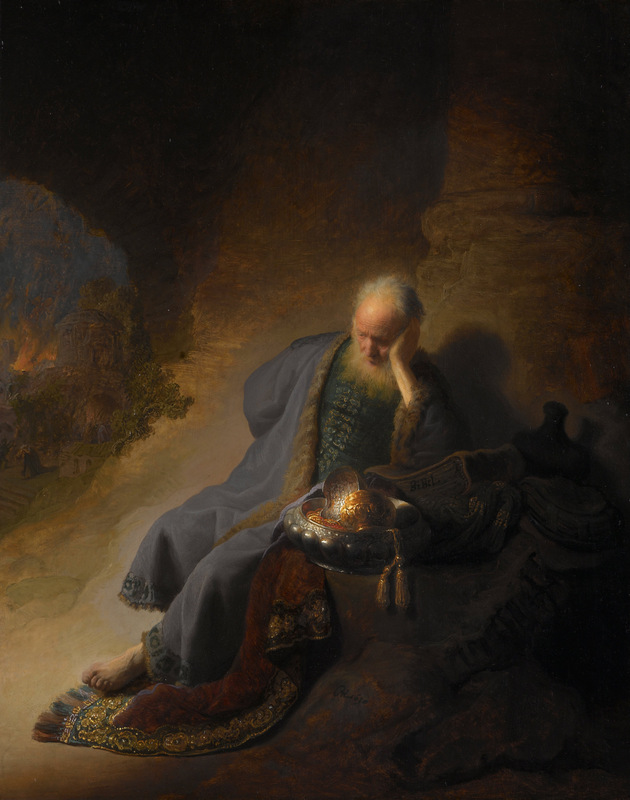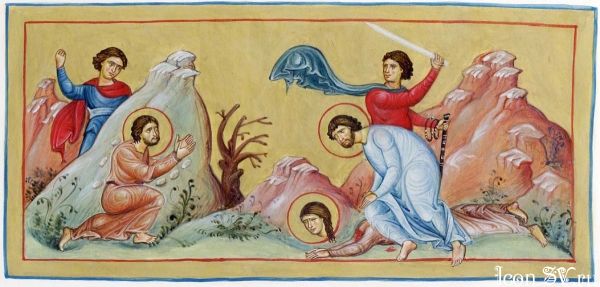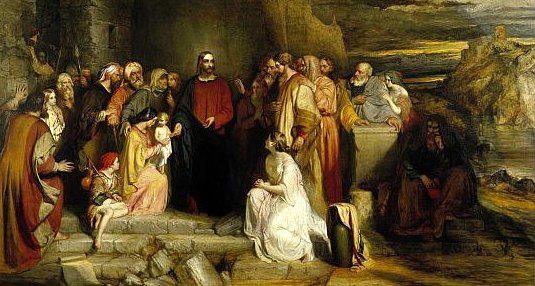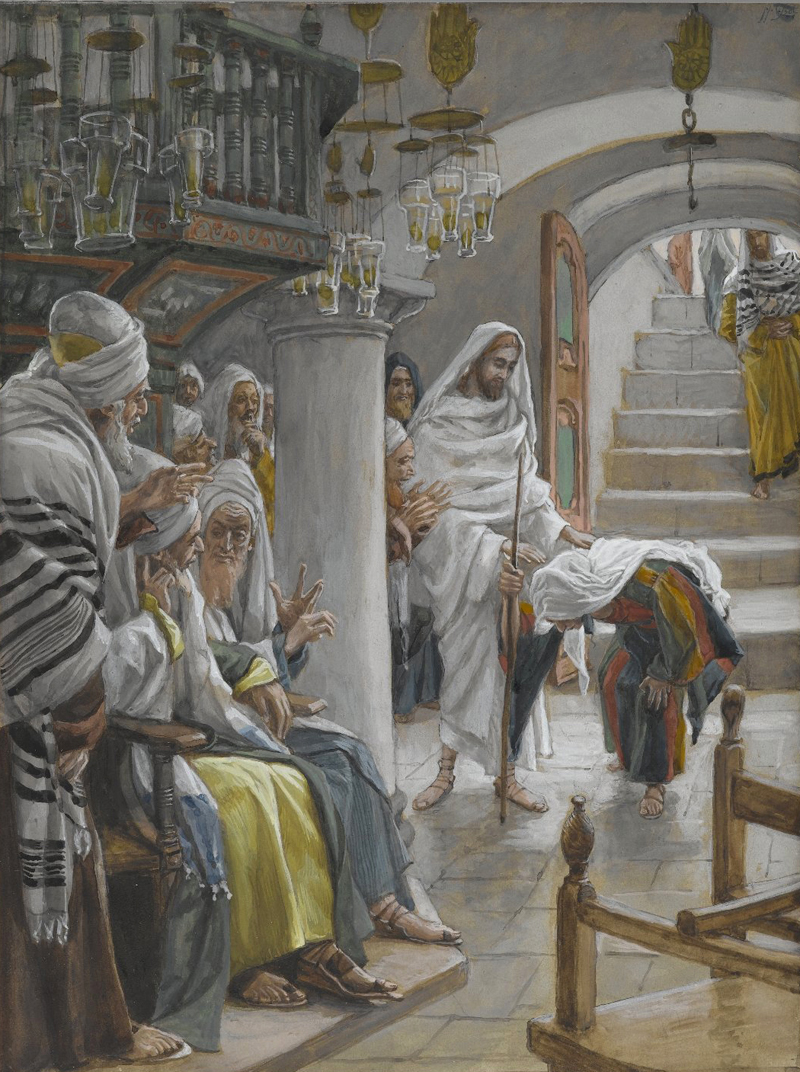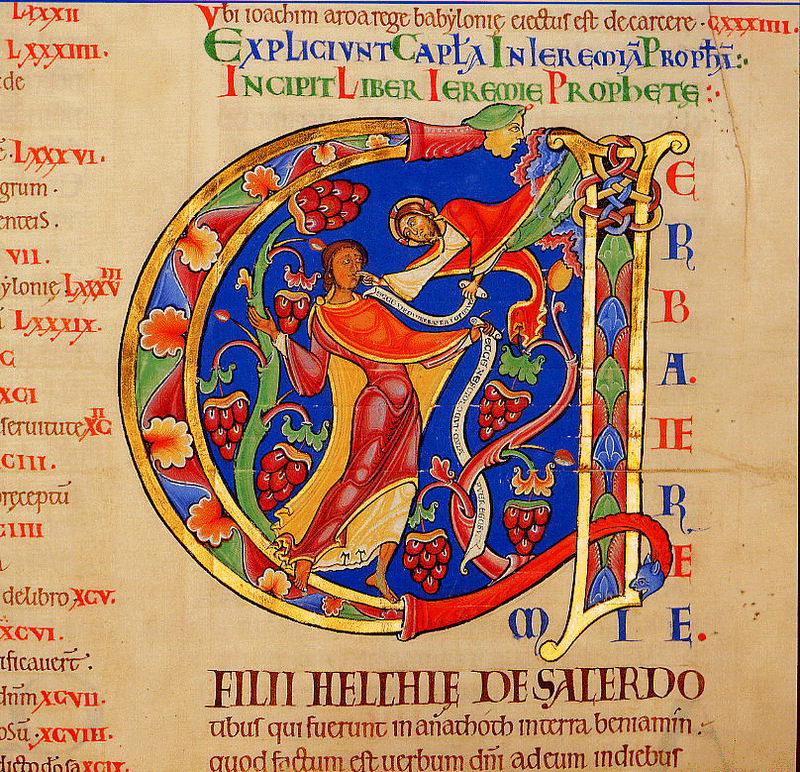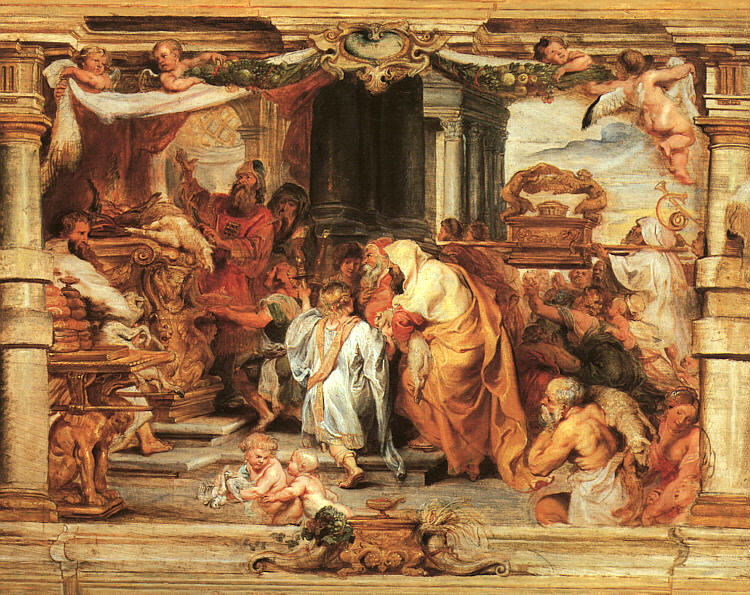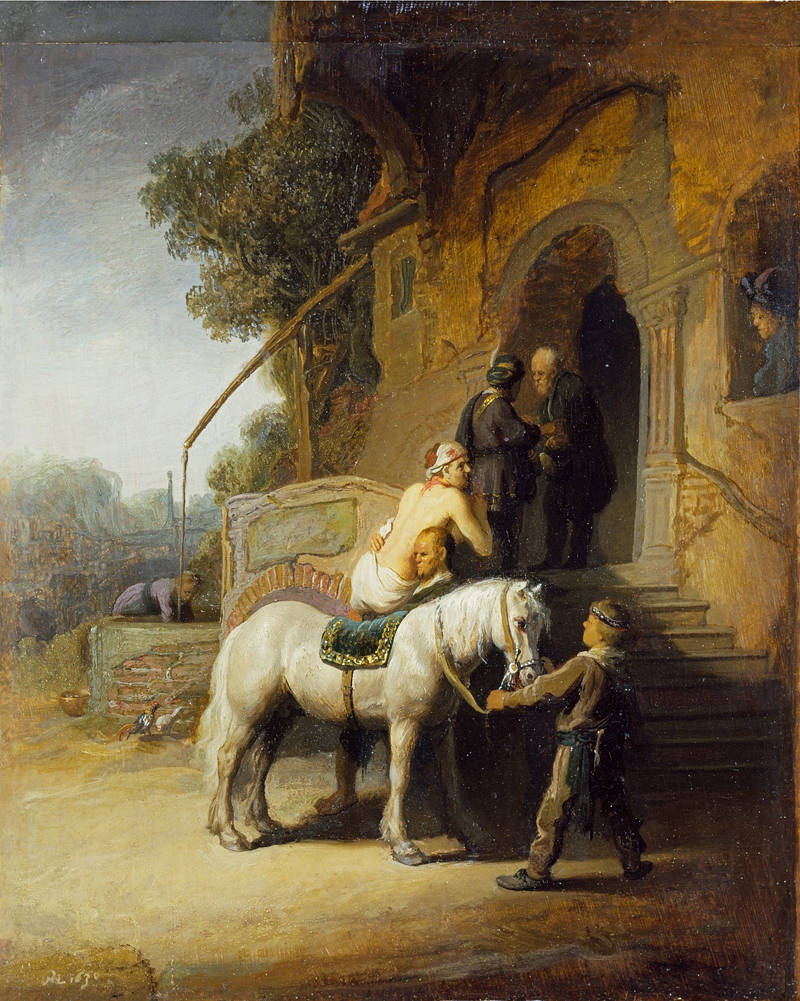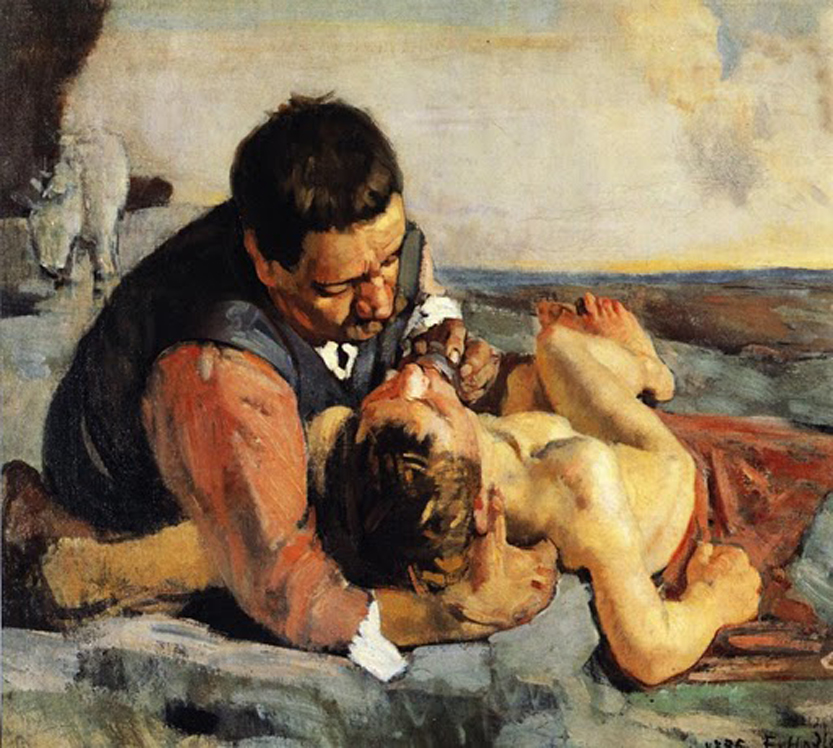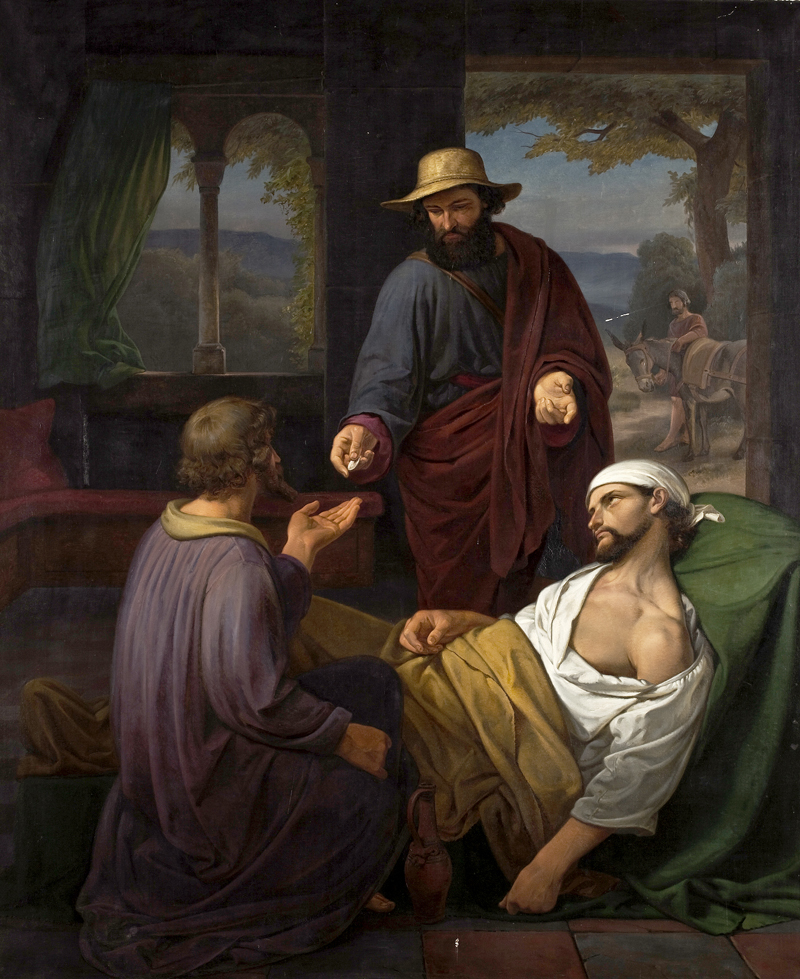St. Luke 23:33-43; Jeremiah 23:1-6; St. Luke 1:68-79; Colossians 1:11-20
Barekmor
Glory be to the Father, to the Son, and to the Holy Spirit
Today we celebrate both Christ the King Sunday as is evident by the gold displayed and also the annunciation of the birth of the Blessed Virgin Mary to Saints Anne and Joachim. As we are focusing primarily on Christ the King, I will first write a brief explanation about the annunciation and then we’ll turn our focus to Christ the King.
The Annunciation of Mary
St. Joachim and St. Anne were childless. St. Anne lamented and mourned her barrenness, but her servant Judith comforted her. After which she was encouraged to pray remembering the story of the barrenness of Sarah and the birth of Isaac. As she was praying an angel came to her and another angel came to St. Joachim in the field to tell both of them of the birth of Mary. You can read a fuller account in the Ante-Nicene Fathers Series
Christ the King Sunday
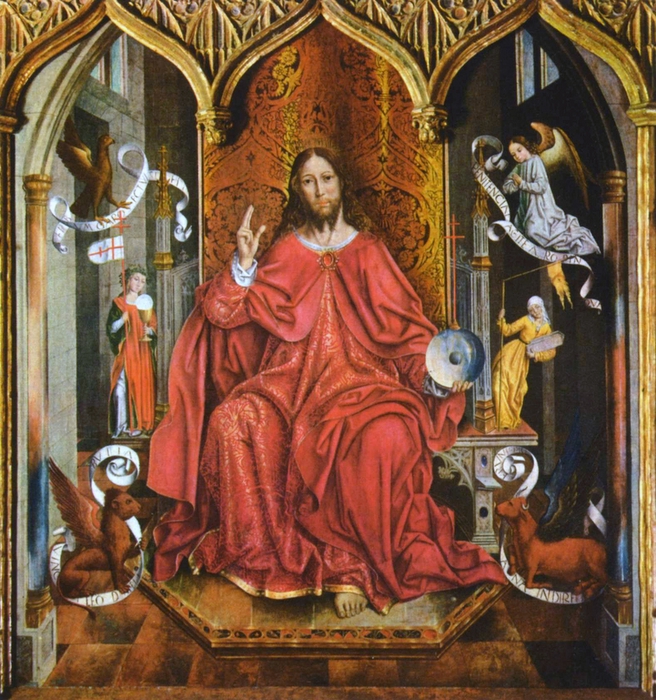
Today we celebrate the Solemnity of Christ the King. This year we have travelled through the life of Jesus culminating today with His Kingship. Among our Orthodox brothers and sisters, this is celebrated on Palm Sunday. We will take a look at His kingship beginning with the gospel portion. Our theme is God the giver and the gift.
Undoing the Fall
The Fathers take special interest in the fact that the place of our Saviour’s execution was called the skull. They take it as either spiritually representing or perhaps even physically being the place of Adam’s grave. The saw His cross as being between the two thieves and above the grave of Adam. It was conspicuously in the centre of corruption. This is where He was going to undo the fall of mankind – in the very centre of the corrupted world above the grave of the first sin. He was setting up a spectacular victory.
Destroying Death
Jesus had become a man. He had become like us in every way that through bearing our sufferings, He might restore us to how it was in the beginning. For our father Adam had been in paradise and through partaking of the fruit of the tree had lost paradise for us all. By the very same thing, by the tree, Christ destroyed death and opened the door for all of us to enter into paradise.
He Prays for our Forgiveness
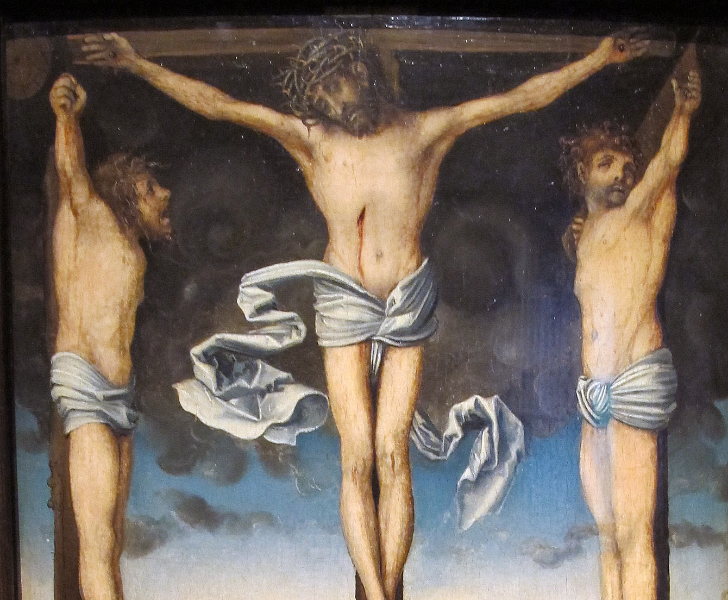
As He is on the cross reconciling the world, He prays for us. As a man, He prayed and as God with the Father He heard the prayer. He prayed for forgiveness of all those who were desiring His death. He prayed,
Father, forgive them, they know not what they do.
Future Members of the Church at the Cross
He saw the future members of the church below His cross. He prayed for their forgiveness that those who wished for his death might be the very ones who would spread His kingdom of forgiveness to the world.
Lest we think that Jesus was able to pray for the forgiveness of those who tortured and killed him because He was God, let us also remember St. Stephen. He was definitely a man and he still prayed for forgiveness of his persecutors and one of them became one of the greatest missionaries of the early church – St. Paul. We have no idea how God will use our persecutors. Let us therefore pray for them.
We also Must Forgive
We are Christians and since our baptism we carry the cross of Christ on our foreheads. That mark teaches us what we should profess. Our Lord spoke forgiveness and welcome to Paradise as He hung there. We must be true cross bearers and bring the message of forgiveness to all those around us.
His Kingship Shines from the Cross
St. Ambrose points out to us that the inscription of His kingship is placed above him and not below him reminding us of three things. First, as Isaiah nine tells us, the government will be upon His shoulders. This government is His eternal power and Godhead. Second, that His kingdom does not belong to His earthly body but rather to His divine authority. Third and finally, that although He was on the cross, He shines above the cross with the majesty of a king.
The Door to Paradise Opened
Now we come to the thief’s confession and Jesus’ great promise. The Fathers tell us what a great statement of faith this is. The thief sees Jesus crucified with all the indignities associated with that and yet he still calls him a king. Then we hear Christ’s response. “Today you will be with me in Paradise.” I remember hearing a clip growing up of Billy Graham saying that the angels were watching who would be the first to enter Paradise and it was a thief.
What is even more amazing, which I hadn’t realised until I was studying this, was that Adam, Abraham, Moses, the prophets and all the saints in the first testament did not go into Paradise until the thief did. Until Christ defeated death on the cross, Paradise was being guarded by Cherubim with a flaming sword, as we read in Genesis 3. However, in His death Paradise was opened and the thief led the line of saints into it.
A Type of Christ
Now we turn our attention to the reading from the first testament. There was a theory that had been put forward during the time of the fathers that Zerubbabel was the fulfillment of this prophecy. The Fathers outright reject it since Zerubbabel was not a king but merely a popular leader. However, they do see Zerubbabel as a type of Christ and that he fulfilled this prophecy in type so that we would know what to look for in the true King.
He was one of those who brought the captives from Babylon to Israel. In the same way Christ has brought those enslaved by the devil to the freedom of the truth. We see the king prophesied as the Lord Jesus Christ a descendant of David according to the flesh, and He is the righteous king, the king of justice that Jeremiah prophesied of.
Prophecy of a King
In Zechariah’s song, we see the word’s “a horn for our salvation”. The sound of a horn signifies the man of God in sovereignty in kingship. The meaning of horn throughout Scripture is associated with kingship and power. Zechariah is not merely prophesying about a Saviour, but about a king.
Saved from the Evil One
Moving on, as the Fathers have taught us as Fr. Pat, others and I have said as well in the past, in similar passages our enemies are not corporeal. We are not being saved from people, but we are being saved from our enemies who are the forces of darkness and of the evil one. We must never, never identify people as our enemies.
Christ comes to save us from our enemies and from those who hate us that mercy might be shown to our fathers. This brings us back to Jesus’ statement on the cross, “Today you will be with me in Paradise.” As Jesus destroyed death and our enemies, mercy was shown to Abraham, Isaac and Jacob in that they were at last able to enter into Paradise. We do not have an individual salvation. Salvation affects the whole body of Christ past, present and future.
Rejoice in Salvation
They had rejoiced merely to see the day of our Saviour. They could now revel in His salvation through His completed work upon the cross.
Christ came when the whole world was wandering around in error and darkness. Night had fallen upon the minds of all the world. We were without hope, but the Lord of all rose for the world. He the dayspring from on high, has brought light to all the world that we might no longer walk in darkness.
God is Reconciled to His People
As we turn to our epistle reading, our theme is that God reconciles Himself with His people through Christ. In the first few verses we see that not only has God given us the honour to receive His inheritance, but He has also given us the strength to receive it. For this, we, with joy, give thanks to God the Father.
Christ has bound the strongman i.e. Satan and taken his goods which is humanity. Formerly, Satan had abused humanity in his every activity but now God has delivered us and given us an inheritance. He has restored the honour of humanity, by taking on our flesh and redeeming us.
In Baptism we are United to His Resurrection
We have received redemption not through the law, but rather through Christ who has borne the law. He gave us redemption through a saving baptism, and we have now been united to His death and resurrection. In baptism we are alive from the dead just as Christ rose again.
Brought Into His Kingdom
It is great thing that has happened, we have been delivered from darkness, the Dayspring i.e. Christ from on high has visited us. However, there is something even greater than this. Not only, have we been delivered but we have been brought into a kingdom. We are not left on our own to wander aimlessly, but we have been brought into His kingdom.
Through His incarnation into our flesh we share in His likeness, and we also share in His kingdom of love when we do good works. We do not lead a life that is so good that we are counted worthy of His kingdom. No, the whole life of the Kingdom is a free gift.
Christ Made Peace
In Christ all of God the Son dwelled in him. It was not merely a sort of energy, but the very substance of God was pleased to dwell in humanity. Through him all things were reconciled. This brings us back to what we saw in both Gospel portions – the way to Paradise is opened for all saints, past, present and future.
He made peace in both earth and heaven. Through His work on the cross He reconciled the angels with humanity. We were in bondage to the evil one and as such we were enemies of the angels. Through the cross, resurrection and ascension humanity was brought into heaven reconciled with God and as a consequence reconciled with the angels. There is no longer any enmity between us and the angels because Christ has restored humanity.
The Cross – The Wisdom of God
St. Cyril of Jerusalem explains some of the wisdom of God in the cross being the means.
For we were enemies of God through sin, and had had decreed the death of the sinner. One of two things, therefore was necessary, either that God, in His truth, should destroy all men, or that in His lovingkindness, he should remit the sentence. But see the wisdom of God; He preserved the truth of His sentence and the exercise of His lovingkindness. Christ took our sins “in His body upon the tree; that we, having died to sin,” by His death “might live to justice.”1
Isn’t this amazing? There were only two options, an either or situation, but God didn’t see it that way and took both options. Judgement and mercy were combined in the cross. It was God’s love that enabled Him to look through this seemingly impossible scenario and bring both justice and mercy to us.
Application
Today then, let us rejoice that Christ is our King, and that He has established His kingdom by opening the way to Paradise. Let us pray for all those who both persecute us personally and the church at large. We must ask for God’s forgiveness on them so that they might be included in His salvation. They may become the future leaders of the Church. We must not do anything to hinder that. Let us remember that our enemies are never people, they are the spiritual forces of wickedness. Every person is a potential saint of God and we must pray earnestly that they might know His salvation. Finally, let us be faithful to live a life of good works and thus share in Christ’s kingdom of love.
In the name of the Father, of the Son, and of the Holy Spirit,
Fr. Matthew
1 Thomas C. Oden and Arthur A. Just Jr., Ancient Christian Commentary on Scripture New Testament IX (Downers Grove, IL: InterVarsity Press, 2003), 21
Gallego, Fernando, ca. 1440-ca. 1507. Christ in Judgment, from Art in the Christian Tradition, a project of the Vanderbilt Divinity Library, Nashville, TN. http://diglib.library.vanderbilt.edu/act-imagelink.pl?RC=47430 [retrieved March 25, 2020]. Original source: www.yorckproject.de.
Cranach, Lucas, 1472-1553. Christ on the Cross Between the Two Thieves, from Art in the Christian Tradition, a project of the Vanderbilt Divinity Library, Nashville, TN. http://diglib.library.vanderbilt.edu/act-imagelink.pl?RC=57236 [retrieved March 25, 2020]. Original source: https://commons.wikimedia.org/wiki/File:Cranach_il_vecchio,_calvario,_1515-20.JPG.

